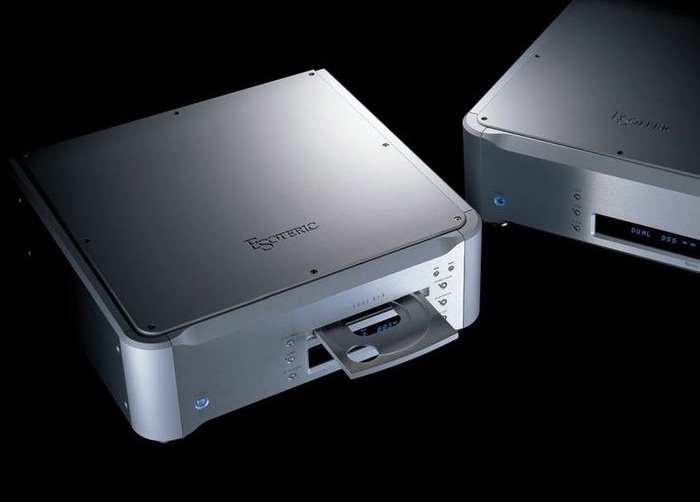I have loved music since almost as early as I can remember. My father worked in the record business all of his life (Columbia Records, then Arista then Atlantic and WEA Music Group). He took me to many, many concerts when I was growing up.
High-end audio became my primary hobby in 1988. I was working in Manhattan, and so I enjoyed establishing relationships with Michael Kay of Lyric Hi-Fi, Andy Singer and Elliot Fishkin. At Lyric Mike played for me the Infinity IRS V system driven by Jadis JA200s with the Goldmund Reference turntable. Listening to Reference Recordings’ Symphony Fantastique on that system was a religious experience of the audio variety! I was hooked!
I have never been an equipment swapper. I have tried to identify the pieces of equipment which I enjoy the most and purchase them, even if they are expensive, and then just take fanatically good care of them so they last a long time.
Starting initially with Magnepan MG-IIIAs I progressed through a series of Martin-Logan speakers. I had Martin-Logan Monoliths and then Monolith IIIs and then Prodigys for many years. I have always loved vocals on electrostatic panels and ribbon panels.
Effective February 18, 2016, I became a Senior Contributing Reviewer for Mono and Stereo.
To better understand my reviews and the context in which I make my comments I want to explain my high-end audio philosophy, my listening biases and my music preferences. By so doing I hope that my reviews and my descriptions of what I hear will be more valuable to you. By enabling you to understand my preferences, and by helping you to calibrate what I like versus what you like, I hope to enable you to triangulate meaningfully on, and better comprehend, what I describe in my reviews.
I believe there are four primary, but not mutually exclusive, alternative objectives of high-end audio:
1) recreate the sound of an original musical event,
2) reproduce exactly what is on the master tape,
3) create a sound subjectively pleasing to the audiophile, and
4) create a sound that seems live.
I subscribe to the first and fourth objectives. I want my audio system to recreate as realistically and as believably as possible the sound of an original musical event, and a sound that seems live. Several conclusions immediately follow from this particular philosophy.
1) I do not care how a piece of equipment measures.
2) I do not care about the theory behind the design of a component (Actually, I do care, but only because I find theory and component design very interesting. But, ultimately, I care only about the resulting sound. I avoid most theory and design threads because I am not dogmatic about particular theories or about particular designs, and because I believe that the implementation is far more important than the theory. This is why turntables of many different designs can all sound good.)
3) I am open-minded about tweaks.
My main musical interest is vocals with minimal acoustic instrument accompaniment. Examples include Sarah McLachlan singing while playing the piano on Fumbling Towards Ecstasy, Jennifer Warnes on Famous Blue Raincoat and Amanda McBroom on Growing Up in Hollywood Town. I also like male vocal recordings such as Bill Henderson’s rendition of “Send in the Clowns” and Jeff Buckley’s Grace.
I like a little bit of jazz such as Dave Brubeck’s Time Out, “For Duke” and Bill Evan’s “Waltz for Debby.” I like a little bit of classical including Mozart Jupiter Symphony 41 and Mussorgsky’s Night on Bald Mountain and Pictures at an Exhibition. I am a big fan of direct-to-disc recordings by Sheffield Lab and M&K RealTime.
I enjoy a lot of perfectly ordinary rock and pop songs (e.g., Bruce Springsteen, Fleetwood Mac, Whitney Houston, Michael Jackson, New Order, Phil Collins, Elton John, Jim Croce, Billy Joel, the Cranberries) and a lot of 1980s songs from “one-hit wonders.” I listen for the believability of a solo vocalist with acoustic instrument accompaniment being present in my listening room and singing to me. I value most highly transparency, no artificial brightness, true-to-life corporeal and instrumental "body," true-to-life dynamics and true-to-life harmonic richness.
I tend to be fascinated by the various non-traditional loudspeaker technologies: electrostatic, ribbon, magnetic planar, MBL, horn, etc. Planar speakers in general (my first speaker was the Magnepan MG-IIIA) and electrostatic speakers in particular (such as the MartinLogans) have always interested me because I like what I consider to be their see-through transparency which makes it sound as though a solo vocalist is singing to me in my living room. I also like the oomph and impact (i.e, cone excursion impact) of dynamic driver speakers and subwoofers.
To my ears, horns, at their best, can reproduce jazz and classical music with greater instrumental body and weight, greater “jump factor,” and greater overall realism than any other speaker technology I have heard. There seems to be something about the way horns move air which allows a greater suspension of disbelief on instruments like saxophone, tuba, trumpet, etc. Those instruments sound on horns more real and more “in-the-room being played by a live musician” than I have heard from any other type of speaker.
No loudspeaker is perfect. Different speakers excel at reproducing realistically different things. Some speaker designs excel at reproducing realistically certain instruments but not voices, and other speaker designs excel at reproducing voices and other instruments.
While my desire for electrostatic midrange transparency and the openness of dipoles has caused me not to be terribly interested in full-range dynamic driver loudspeakers, I nonetheless like the cone excursion impact of dynamic drivers for low frequencies. This is why I have been drawn for the last 28 years to MartinLogan hybrids.
I have some seemingly unusual sensitivity to brightness and edginess. Screeching brakes on buses and trucks give me literally an instant headache. I find unappealing any audio system, and any component thereof, which sounds edgy or artificially bright. I had a brief affair the weekend of T.H.E. Show 2015 with the amazingly realistic and dynamic MBL 101E Mk. II. But after listening to the MBL speaker for five hours that weekend, and for several hours at a friend’s house with tube electronics and vinyl, and after much research and discussion, I could not avoid the conclusion that the MBL sound is simply is too hot for me.
I have always preferred tube electronics because I find that there is a wonderful synergy with tubes on electrostatic panels. I have never heard solid-state amplifiers drive electrostatic panels and sound rich and natural and liquid the way tubes sound to me. I hear the greater dynamics and leading-edge transients and detail of solid-state amplification, but it always sounds a bit dry to me, especially on electrostatic panels. In addition I believe that MartinLogans like a lot of power (and I believe that Magnepans need a lot of power). So high power tube amplifiers have always been the correct answer for me.
I heard the Aesthetix Io all-tube, dedicated phono preamplifier at one of Jim White’s first dealers, and I was hooked immediately. I hear from the Io richness and bloom and detail and decay and liquidness that I appreciated from day one and from which I have never tired.
I resent expensive cables. I know that different cables sound different. But I think the whole expensive cable thing is a morass. I believe that a network which contains a resistor, an inductor and a capacitor (a basic R-L-C circuit, which is also known as a tuned circuit) is a simple tone control.
I believe that many debates and conflicting opinions about format preferences and equipment preferences and sound preferences arise from audiophiles holding different views on their objective of high-end audio, and from starting the debate with those different objectives not explicitly in mind.
I also believe that much other consternation arises simply from the well-known incomparability of interpersonal utility (e.g., there is no objective, principled way to prove that you like chocolate ice cream more than I like vanilla ice cream).
I think we all hear substantially the same thing in the concert hall. So why do we end up with audio systems which sound very different?
Audio components don’t reproduce sound perfectly — either the sound of a single acoustic instrument played live in front of us in a small room, or the overall sonic experience we enjoy in the concert hall. We don’t achieve 100% suspension of disbelief while listening to our stereo systems.
Since our audio components collectively cannot re-create the entire experience we feel in the concert hall each of us chooses components that re-create those particular attributes of sound we hear in the concert hall which subjectively maximize our personal suspension of disbelief. Which particular attributes of sound are most important to us as conduits to maximizing our personal suspension of disbelief is subjective. Different audio components will be used by different audiophiles to achieve certain particular attributes of sound. This is why our different stereo systems sound so different, even though we all are hearing substantially the same thing in the concert hall.
How each of us chooses to replicate at home with an audio system an experience similar to the experience in the concert hall is subjective. This is why there is no one, same “world’s best [component]” for all audiophiles.












